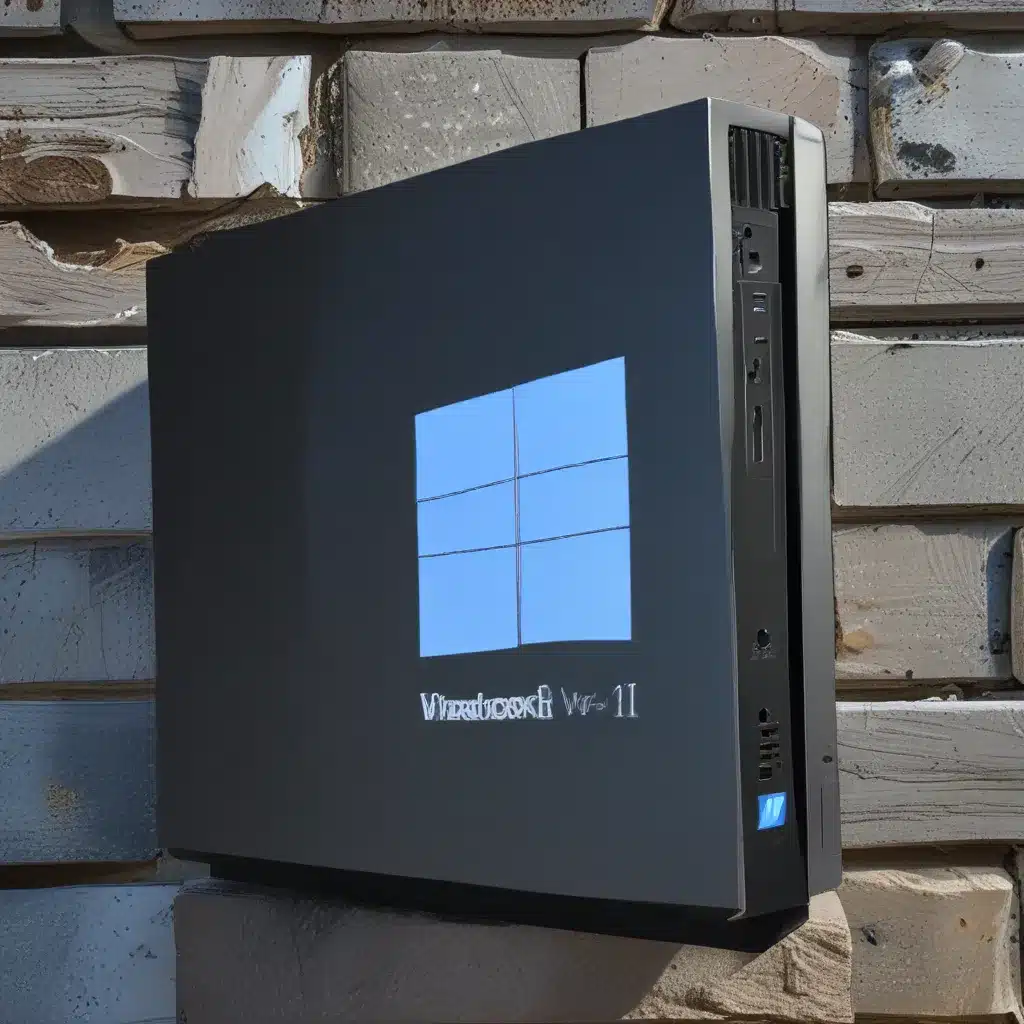
The Great Windows 11 Compatibility Conundrum
As a self-proclaimed tech enthusiast, I’ve always been the go-to person for my friends and family when it comes to computer-related questions. So, when the news of Windows 11 hit the airwaves, I was inundated with a barrage of inquiries – “Will my old PC be able to run the new OS?” “Do I need to buy a brand new computer?” “Is Microsoft deliberately trying to make my laptop obsolete?”
It’s a conundrum that’s been puzzling PC users ever since Microsoft announced the system requirements for their latest operating system. And to be honest, even I, with my extensive knowledge of all things tech, was initially a bit stumped. But fear not, dear readers, for I have delved deep into the murky depths of the internet to uncover the truth about Windows 11 and its compatibility with older hardware.
The Mysterious System Requirements
Let’s start with the basics. When Microsoft unveiled Windows 11, they laid out a set of system requirements that seemed, to many, a bit arbitrary and restrictive. The minimum hardware specifications include a relatively modern processor (an 8th Gen Intel Core CPU or AMD Ryzen 2000 series and above), 4GB of RAM, and a Trusted Platform Module (TPM) 2.0 chip.
Now, I know what you’re thinking – “My laptop is only a few years old, and it’s more than capable of running Windows 10. Why can’t it handle the new OS?” Well, according to Microsoft’s official statement, the system requirements are in place to ensure “a more reliable and secure computing experience.”
But as we all know, Microsoft isn’t exactly known for its crystal-clear communication, and this statement has left many users scratching their heads. Is there a genuine technical reason behind these requirements, or is it just a ploy to drive people towards newer hardware? Let’s dig a little deeper.
Cutting Through the Confusion
After scouring the internet for answers, I stumbled upon a thought-provoking discussion on Reddit. The general consensus among the tech-savvy community seemed to be that the system requirements, while not entirely unreasonable, were somewhat arbitrary and artificially restrictive.
One user pointed out that “besides the artificial and/or arbitrary blocks put in place by Microsoft on the installer and on Windows Update, if said blocks are removed or circumvented, then Win11 installs and runs just fine on any computer that can run Win10 right.”
In other words, the technical limitations that Microsoft has imposed on Windows 11 may not be as stringent as they would have us believe. As long as your PC can handle the new OS, it should, in theory, be able to run it without any major issues.
The Rufus Solution
Speaking of circumventing Microsoft’s restrictions, I stumbled upon an interesting solution that’s been making the rounds in the tech community: Rufus. This nifty little tool allows you to create a bootable USB drive that can install Windows 11 on virtually any PC, regardless of the official system requirements.
Now, I know what you’re thinking – “Isn’t that kind of sketchy? Isn’t Microsoft going to come after me with a cease-and-desist order?” Well, from what I’ve gathered, as long as you’re not distributing the Windows 11 ISO file itself (which is still under Microsoft’s copyright), using Rufus to install the OS on your own machine is perfectly legal.
In fact, the MakeUseOf article I read even suggests that “if said blocks are removed or circumvented, then Win11 installs and runs just fine on any computer that can run Win10 right.” So, if you’ve got an older PC that meets the basic hardware requirements for Windows 10, there’s a good chance it can handle Windows 11 as well, with a little help from Rufus.
The Bottom Line
At the end of the day, the question of whether your old PC can run Windows 11 doesn’t have a simple yes or no answer. It really depends on the specific hardware in your machine, as well as your willingness to explore alternative installation methods.
If your computer is relatively modern (say, within the last 5-7 years) and meets the minimum system requirements, you should be able to upgrade to Windows 11 without any major issues. However, if your PC is a bit long in the tooth, don’t despair – there are workarounds like Rufus that can help you bypass Microsoft’s restrictions.
So, what are you waiting for? Head on over to itfix.org.uk and let the professionals there take a look at your old machine. With a little bit of elbow grease and some creative problem-solving, we just might be able to get Windows 11 running on your trusty laptop or desktop, no matter how long in the tooth it may be.












